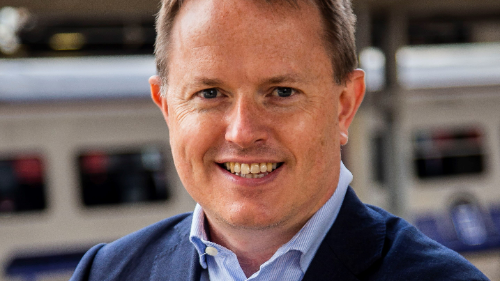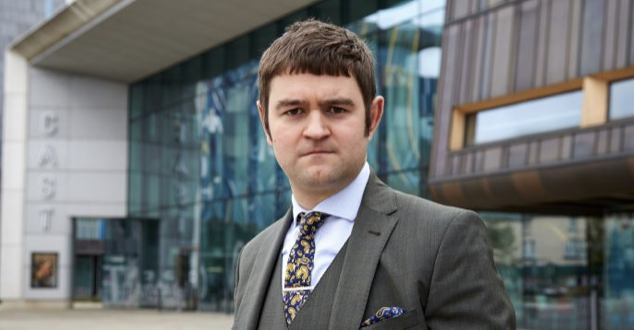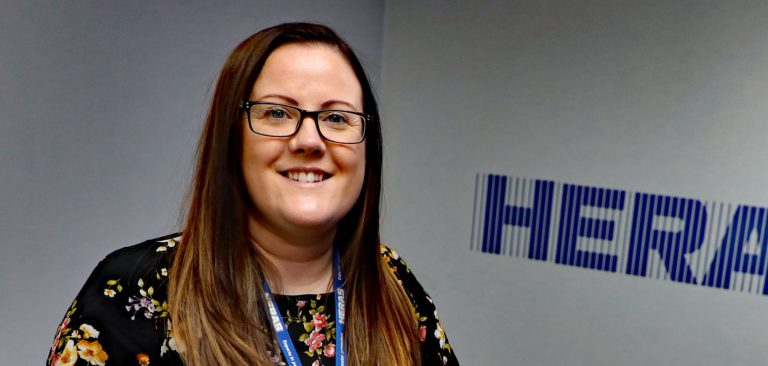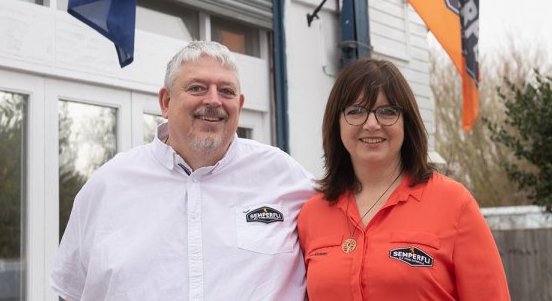Inventive name earns £2,500 business development prize for Sheffield company
Sheffield-based ethical school chick hatching project business Eggucation has been crowned by the public as Britain’s Best Small Business Name for 2023, winning a £2,500 prize with which to support business growth.
The competition by SME insurance provider Simply Business was launched to celebrate the wit, creativity, and humour of the nation’s small business owners.
Eggucation picked up 21% of the total votes, beating competition from the likes of Grimsby’s It Started with a Stitch and Leaky Finders Ltd.
With more than 10 years’ experience enhancing science and STEM education with their ethical schools hatching projects, Eggucation provides high quality and ethically-sound enrichment experiences in schools right across the UK. A passionate team of rare-breed poultry breeders, the company looks to provide schools with ‘Conservation in the Classroom‘ experiences.
Company founder Deb Howe said:“It was a thrill just to be nominated as part of the Simply Business’ competition to find Britain’s best small business name, but to win is absolutely fabulous and I’m humbled by the support both from the public and my clients.
“The name is easy to remember, unique and most importantly, always brings a smile to people’s faces. The name has helped bring to life my ambition for the business which is to give young people the opportunity to make real and memorable links to nature, sustainable food and farming.
“I would love every school to share this eggsperience and the £2,500 prize money from Simply Business will really help me continue to educate students on a message close to my heart.”
Alan Thomas, UK CEO at Simply Business said: “We’re incredibly proud to provide tailored insurance to over 800,000 creative and diverse SMEs across the UK. The impact that a memorable name can have on your business is incredible – our research showed that people really warm to small businesses who have shown their personality through an imaginative name – and Eggucation is a worthy winner of our annual competition.”
“SMEs have been hit harder than most in recent years so it is nice to have an opportunity to celebrate them. With close to six million small businesses across the UK, they are the lifeblood of our communities and collectively provide trillions of pounds to the UK economy. It is a real pleasure to award Eggucation with a £2,500 grant to support their business journey.”
Hull Trains plans £1.2m spend to redevelop Howden Station’s platforms
Hull Trains intends to spend £1.2m on improvements at Howden Station, with platform levels will be raised to reduce the stepping distance on and off trains, with the money coming from the company’s £3m Passenger Infrastructure Improvements Fund.
Paul Jackson, Head of Customer & Stakeholder Engagement at Hull Trains, said: “Since the introduction of our sParagon train fleet, the stepping distance from platform to train has increased at the latter end of each platform at Howden. We therefore identified these improvement works as a priority and are confident that passengers of all mobility levels will benefit from greater accessibility when the installation is completed.”
Hull Trains will be working in close partnership with station operator Northern, as well as Network Rail and TransPennine Express, to make sure that disruption is kept to a minimum while the platform redevelopment is underway.
There will be no impact to customer walking routes as the installation will take place overnight, with the platforms and waiting shelters remaining open during the day. Noise blankets will also be used during construction to effectively manage sound levels so that nearby residents are not disturbed.
Tony Baxter, regional director at Northern, said: “All investment in rail infrastructure is to be welcomed – especially if it has a direct improvement on the customer experience and makes the railway more accessible. I would like to thank customers for their co-operation and patience while this work is carried out.”
Works will take place overnight, starting on 27th March with a mid-May completion date.
Hull Trains MD Martijn Gilbert added: “Improving accessibility at Howden is part of an ongoing investment in our services at Hull Trains, and follows the introduction of a brand-new train fleet and increase in services in recent years. The project is an important part of us continuing to provide reliable, affordable and low carbon train services that are easy for everyone to access along our route.”
Doncaster ‘dismayed’ at failing to be chosen as Great British Rail HQ
Doncaster Chamber Chief Exec Dan Fell says he’s dismayed that the city’s been passed over for this opportunity to be the HQ for Great British Rail, considering that it met every piece of criteria outlined by the government.
He said: “For over a century, rail has always been an inseparable part of our DNA. The iconic Mallard and Flying Scotsmen locomotives were built right on our very doorstep and today many key suppliers within the rail industry are based here in South Yorkshire.
“Not to mention, our region has got its act together when it comes to creating a skilled pipeline of future rail industry workers, thanks to specialist education providers like Doncaster University Technical College.
“For these reasons and many more, I believe that we were the clear right choice to host GBR. I lament the fact that government did not recognise this but also lament the fact that, as a region, we perhaps did not do quite enough to present an unassailable case to them.
“It would be easy to blame this decision on politics and that will, no doubt, have been a factor. However, local and regional partners — inclusive of the Chamber — also need to look themselves in the mirror and ask what we might have done better. Too many things are not going Doncaster and South Yorkshire’s way at present, and we need to forensically understand why that is.
“That said, our region did fight hard for this and put significant resources into the campaign. It is a shame that — in common with previous government-instigated competitions, such as Free Ports — that this effort has been largely abortive. We can only hope that, in the future, the government will not continue to leave its important decision-making up to resource-sapping competitions like this.
“While we may have missed out on this particular bid, it is important to remember that there are still other exciting opportunities on the horizon that we must seize. Looking ahead to the future, we will be campaigning for the establishment of a second UTC in Doncaster, after the first was such a resounding success, lobbying for a new hospital, and looking for other ways to drive growth in our region.
“Not to mention, it is imperative that we persist in the ongoing fight for Doncaster Sheffield Airport. If the government is truly serious about its commitment to levelling up, then backing these key projects would be a good way to compensate for overlooking South Yorkshire today.”
Wilkin Champan brings Louth and Horncastle teams together in new offices
Law firm Wilkin Chapman has opened a new office in Oxley House on Louth’s Fairfield Industrial Estate, welcoming more than 70 professional contacts across the region to the new premises.
The company has combined its Louth and Horncastle teams at Oxley House, where it will will occupy the first floor of the 10,000 square foot development, with the building’s owner, accountancy and business advisers Duncan & Toplis, due to move into the rest of it.
Claire Parker, Partner and head of the new Wolds office at Wilkin Chapman Solicitors, said: “The new development looks absolutely fantastic and provides us with a modern, flexible environment that’s better suited to hybrid working and the changing needs of our clients.
“The move represents our continued commitment to the Lincolnshire Wolds area, giving us a space that will allow for improved collaboration and communication between our colleagues and clients with the availability of plenty of parking, something which we weren’t previously able to offer.
“The new office will help us to support our clients, team members and the wider community for many years to come.”
Greater demand could fall on renewables to keep the lights on by the end of the decade, says Baringa
New research carried out by Baringa on behalf of renewable energy company Drax Group has shown that by the end of the decade biomass generation could play an increasingly critical role in ensuring security of UK energy supply.
The research highlights the critical contribution that biomass could play in late 2020s as coal plants and nuclear fleet close down. And in the meantime Drax is to pause this year’s investment in its carbon capture project as it waits for clarity of Government’s commitment – without BECCS support Drax Power Station could become unviable by 2027. Baringa’s research shows that by then, peak demand for GB electricity will increase by 4GW but at the same time the imminent closure of coal, older gas generation and nuclear power stations will remove up to 6.3GW of secure capacity from the grid. This will mean that the dispatchable capacity which supports GB energy security will fall from 93% to 85% at times of peak demand, increasing the risk of a supply shortfall. The system will need to rely on other forms of capacity, such as electricity interconnectors and intermittent renewable generation like wind or solar, to make up the 15% difference at times of peak demand, or steps may need to be taken to reduce consumption such as through voluntary demand reduction or forced turndown. Drax power station is currently the largest provider of dispatchable power to the GB electricity system, as well as being one of the only renewable sources of secure supply. Its renewable biomass generation provides 2.6GW of electricity, supplying millions of homes and businesses with dispatchable, reliable power. Whilst Drax welcomed the Government’s support for CCS in the recent Budget, it needs its BECCS project to gain Track 1 status, without which, Drax Power Station may become unviable and unable to contribute secure power at a time of such critical need. Until it receives this clarity, Drax has taken the decision to pause it’s multi-million-pound investment programme into the BECCS project at Drax Power Station. At times with the tightest margins, Drax’s biomass units provide up to 11% of total GB electricity generation and up to 70% of the renewable generation. The loss of Drax’s and other biomass units from the GB electricity system would further reduce the country’s dispatchable capacity to 80% of peak demand (from the already forecasted fall to 85%), increasing reliance on gas and power imports, generation from intermittent renewables, and increasing costs for consumers. Drax CEO Will Gardiner said: “Whilst we welcome the Government’s ambition to invest billions in carbon capture and storage, we need a firm commitment to BECCS before we commit to investing £2bn into installing this technology at Drax Power Station. “Until we have this clarity, we are pausing our multi-million pound investment programme in the UK BECCS project and urge Government to use the planned announcement at the end of the month to outline their support for this. Any further delays to this project could impact the UK’s security of supply, net zero and levelling-up ambitions and the viability of Drax Power Station.” The research also found that by 2027 no established technology can feasibly replace the security of supply provided by Drax’s 2.6GW of biomass capacity, without significantly increasing carbon emissions and relying more on imported fossil fuel from Europe.Hybrid Air Vehicles signs up as Doncaster Chamber’s latest patron
Having announced that it would build its revolutionary aircraft in South Yorkshire, Hybrid Air Vehicles has signed up as the newest patron of Doncaster Chamber.
Welcoming them aboard, Dan Fell, Chief Exec of Doncaster Chamber, said: “It is a tremendous honour to have such an innovative and cutting-edge business in our network, one that is doing really important work for the planet. Hybrid Air Vehicles is making huge waves in the world of aviation right now and is set to change the industry for the better with their forward-thinking approach.
“Now that they have become patrons, I am pleased to say that we will be working together even more closely. Their imminent expansion into Doncaster will have major economic benefits for the region — including the creation of more than a thousand highly skilled jobs — and will put us at the heart of an ambitious vision for a greener future. Suffice it to say, we are very excited to see what that entails.”
Headquartered in Bedfordshire, HAV is a pioneer in the field of green aviation technology and is currently making huge strides when it comes to sustainability. In particular, their trailblazing Airlander 10 vehicle — which is part plane and part airship — promises to revolutionise the aerospace industry by showing what can be done to reduce emissions.
Capable of boarding 100 people at a time (or ten tonnes of freight) the helium-filled craft is estimated to have a carbon footprint that is up to 90% less than that of a standard jet aircraft. It can also remain airborne for up to 5 days, offering high endurance.
It is therefore very exciting to know that these state-of-the-art vehicles will be built right here in Doncaster. Last week saw major progress on that front, as the South Yorkshire Mayoral Combined Authority (SYMCA) approved £7m’s worth of funding that will ultimately pave the way for HAV’s plans. This loan will enable Hybrid Air Vehicles to begin investing in the region, paving the way for a £310m production programme which will lead to new facilities, job opportunities and supply chains for the manufacturing of Airlander 10.
UK manufacturers urged to ‘think outside the box’ to beat recruitment problems
Leading figures from the UK’s manufacturing industry are being encouraged to think outside the box in a bid to recruit more people and fill a slew of unfilled vacancies up and down the country.
That was the message from Laura Ibbotson, Head of HR UK at Doncaster-based Heras, when she addressed delegates at this year’s Make UK – a national conference for manufacturers in London.
Laura was one of a panel of experts discussing the topic of Talent: Recruiting Outside the Box, which was looking at ways to reignite the manufacturing industry’s recruitment strategies to overcome the current minute talent pool of candidates available to businesses.
Laura, a chartered fellow of the Chartered Institute of Personnel and Development said that forging educational partnerships was fundamental for manufacturers to help create pathways into careers for local young people. “Building strong links with the local community has been one of the strategies that we have employed at Heras – with a focus on educational establishments because it is a great opportunity to showcase the careers available in our industry and create a future talent pipeline.
“We have worked extensively with one local academy in particular in Doncaster, which has been reciprocally beneficial in engaging with young people and showing them the vast array of opportunities that are open to them if they pursue a career in manufacturing.
“We are in the process of launching our latest initiative: teacher externships, providing teachers with work experience on site so that they can take their experience and learnings back to the classroom.’’
Laura also told the assembled group about how the company uses neuro-linguistic programming profiling to assess if a candidate is right for the role and the team and to ensure the business does not recruit mini-mes. Heras uses this profiling to manage teams to their full potential and to retain them.
She also discussed the importance of embracing and using emerging technologies such as Linktree – which allows users to share multiple links on social media. Heras is using this to clearly communicate with candidates and ensure they are fully informed and have a clear understanding of Heras before the interview process commences.
Laura rounded off the session by offering three insights:
- Manufacturers should work more closely with their HR teams. “Businesses need to change their approach to recruitment, and the best way of achieving this is working with the people experts – your HR department.”
- Leaders should drive diversity as a way to benefit from employing different people with different skills and experiences. “Many businesses have aspirations on issues such as diversity, but they have to free themselves from entrenched views and ‘if you always do what you always do’ approaches in order to be more accessible and flexible.”
- Don’t pay lip service to events such as International Women’s Day, ensuring that the drive for diversity happens continuously throughout the year if they want to attract and retain talent. She said: “Live it, breathe it and believe in it.”
British Steel products keep Welsh heritage railway on the right track
Another delivery of rails from British Steel at Scunthorpe is helping a North Wales heritage railway gear up for a new season.
The first delivery to the Llangollen Railway in the Dee Valley extended the track by more than two miles; the new delivery will replace two miles of existing track. And later this year, there are plans to start relaying further track, a project that will take around two years. That’s next to the line’s tunnel. It’s 40 years old and has corroded because of its location.
The chosen product is ‘Zinoco’ which are coated in zinc, which forms a protective barrier against corrosion, and thanks to latest advances, its super-hydrophobic finish also repels water.
Darren Cole, British Steel’s UK Account Manager for Rail, said: “Maintaining a facility like this is something of a labour of love, heritage lines by their very nature require ongoing care and attention and often rely on a handful of rail enthusiasts. I’m very proud Scunthorpe rail is playing its part in their ongoing story.”
Terry Pickthall of the Llangollen Railway said: “Our team, mostly volunteers, is putting the finishing touches to our fantastic new station at Corwen. This impressive facility will be a great asset to our operations and we’re really looking forward to it opening in the summer.
“Alongside this, our staff and volunteers are also working hard to keep our existing line in excellent condition. The recent delivery of British Steel 56E1 rail has allowed us to replace a sizeable section of worn rail between our Berwyn and Glyndyfrdwy stations. This part of the line is in the very heart of the Dee Valley Area of Outstanding Natural Beauty and the work has been completed in time for trains to run over new Scunthorpe-made rails during our busy Easter operations in April. We’re hoping the snow we’ve seen in March is replaced with spring flowers by Easter, but either way the valley always looks stunning!”
The former British Rail Ruabon to Barmouth line closed to passenger traffic in 1964 with goods traffic ending four years later. In 1975, the heritage railway was started by a group of enthusiasts who saw the potential for a scenic line through the Dee Valley. Terry said “When the line finally closed in 1968, the track, signalling and much of the infrastructure was removed or demolished quickly after. It’s taken a lot of hard work from our enthusiasts over many years and it’s their vision that has led to the fantastic service we offer today.”
Applications window opens for 2024 Countryside Stewardship payments
Farmers and land managers can now submit applications for the next year’s Countryside Stewardship Mid Tier agreements which will reward them for their actions to protect and enhance the natural environment.
Countryside Stewardship gives farmers and land managers the opportunity to be paid for environmental work alongside sustainable food production, from restoring wildlife habitats and managing woodlands, to mitigating flood risks. 32,000 Countryside Stewardship agreements are now in place across England – a 94% increase in uptake since 2020 – including nearly 26,000 Mid Tier agreements.
Following farmer feedback, the scheme has continued to evolve and improve with:
- the removal of the limit on the value of capital items in the water or air quality, hedgerow and boundary, or natural flood management priorities
- a broadened offer to support natural flood management, create more areas of scrub, and reduce nitrogen inputs in groundwater;
- improvements to the application process to make it easier for farmers and land managers, with a new online application service, the removal of the need for farmers to request an application pack before starting their application, automatic checks to enable applications to be processed quicker, and an annual declaration.
- an average increase of 10% for revenue payment rates and 48% for capital payment rates, as announced in January.
On the fly: Couple grow worldwide angling business from premises in Selby
A North Yorkshire couple who ditched careers in IT and switched to selling fly-fishing supplies to established retailers and distributors around the world now employ 25 staff and sell to America, Canada, South Africa, Japan, Australia, New Zealand and across Europe.
Ann and Andy Kitchener oversee the Selby-based Semperfli, which now has a global market to provide more than 1,400 products including threads, ties, wires and chenilles to create flies to catch species including salmon, trout, sea bass, zander and tarpon.
The success of the company, which carved out a reputation in the sector after developing Nano-Silk, billed as the world’s strongest fly-tying thread, saw it receive a Queen’s Award for Enterprise for International Trade.
The Kitcheners have been aided by Heidi Green, a senior business advisor at Selby District Council, who helped the couple secure funding for new equipment and advice from consultants to develop the firm. That support has been even more important amid the dramatic rise in inflation that has seen Semperfli experience significant increases in running costs of up to 20 per cent.
Ann, the company’s chief exec and herself a keen angler, is one of the Government’s Northern Powerhouse export champions. She said: “We have managed to develop our business around the globe and we now supply to some of the leading fly-tiers in the world – but we wouldn’t have been able to do that without the support we have received from Heidi, who has been absolutely brilliant in providing that valuable insight we have needed.
“The launch of the new North Yorkshire Council is a really welcome development, as it will mean that businesses in the county will be able to access advice from one single organisation.
“It can be confusing for people to know where to turn, but the new council will still have the local knowledge and expertise that is currently available while looking towards a county-wide plan to drive forward business and the economy.
“We have had to contend with rising costs like all businesses have, and we have had to look at the way we operate to take into account increasing prices for shipping, energy and wages. Without the help and advice we have received, the situation would have been a great deal more challenging.”
While working alongside Selby District Council, Mr and Mrs Kitchener have identified organisations that have provided funding, including a five-figure grant through the University of York that helped purchase spooling and labelling machinery.
The expertise of management consultants has also been used to develop the business, which sells products that are environmentally-friendly to take into account the often sensitive natural habitats where the flies are used, while funding has also been secured from the Department for International Trade. The company now has a 90-strong team of ambassadors across the world including some of the biggest names in fly-fishing and fly-tying.
Andy Kitchener said: “One of the biggest challenges we faced when we were setting up was to find suitable premises, because there simply aren’t enough units for businesses locally.
“We ended up building the initial premises ourselves close to our home in Selby, but we soon outgrew that. With the growth of our company, we needed to find bigger premises and ultimately found our ideal new base making sure we could stay in the town.
“We have some hugely talented and experienced staff, and we didn’t want to lose them if we had decided to move elsewhere. The new premises are fit for purpose to help the business develop, and there is low-energy lighting and insulation and we are looking to install solar panels which will help keep running costs down as well as lessen the impact on the environment.
“We have developed a real reputation globally, which is of benefit to not just Selby, but also the economy in North Yorkshire and nationally. North Yorkshire is home to such a varied and diverse mix of businesses, and that is what makes the county so special. We are indebted to the help we have received, and to know that expertise will be available in the future is vital to ensure we can continue to grow the business.”












